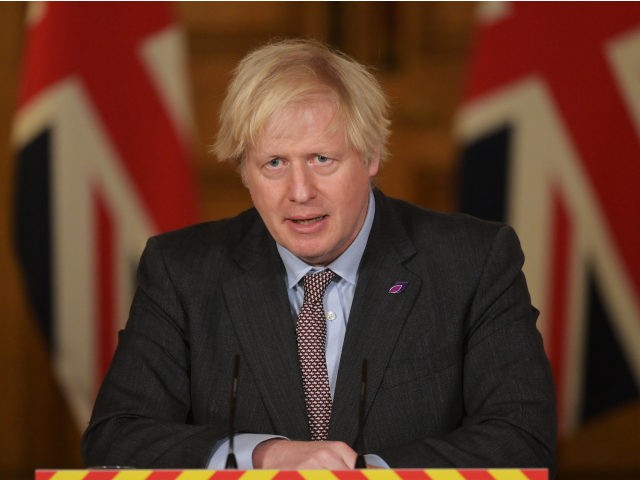Prime Minister Boris Johnson is working on a “three-stage plan” to ease England out of strict lockdown measures by May, according to reports.
On Wednesday, the prime minister said that he would reveal a “roadmap” by February 22nd outlining an exit strategy where the country could “begin steadily to reclaim our lives”. He added that schools would not be reopened before March 8th; however that date was subject to the success of the vaccination programme and Chinese coronavirus death rates.
Government sources speaking to The Telegraph yesterday said that after schools begin to open, non-essential shops could begin to reopen a month later, with pubs and restaurants reopening in May.
The Whitehall official told the conservative-leaning newspaper: “If schools do open in March, and the priority is certainly to open schools first, then it will mean other things have to remain closed for some time.
“We have to avoid the situation last time where the return of schools meant far greater household mixing across the board.
“So that means we’d be likely to wait at least another month for non-essential retail, and a month beyond that at least for pubs and restaurants.”
So far, the government has given mixed messages about the end of lockdown, either refusing to give an end date or suggesting restrictions would only start to be lifted by late Spring to early Summer.
A large part of the conditions to reopen schools is based on vaccinating the country’s most vulnerable groups, including all those aged over 70. Ministers have said that the NHS is “on track” to meet that deadline by Feb 15th.
The issue of vaccines has become a matter of contention between the United Kingdom and the European Union in the past week. Earlier, Pfizer and AstraZeneca, which is providing vaccines for the UK and the bloc, announced delays to deliveries of orders to European countries due to production problems at the drugs firm’s Belgian laboratories.
Facing criticism for its failures to secure contracts for vaccines as efficiently as the British, the EU threatened to block the export of EU-made doses contractually destined to the UK. In recent days, Brussels bureaucrats have also demanded that any AstraZeneca vaccines made in the UK under a British government contract intended for domestic use be shipped to Europe to make up for the shortfall.
Senior minister Michael Gove said on Thursday that there was no question of whether British vaccines would leave the UK, telling media: “It is the case that the supplies which have been planned, paid for, and scheduled, should continue. There will be no interruption to that.”
Claims from the CEO of AstraZeneca and other reports in the media suggest that the European Commission’s insistence on handling all drugs contracts on behalf of the EU-27 was to blame for the delays in the bloc signing procurement agreements, which in turn contributed to Europe having the lowest productivity for vaccines. The EU has vaccinated on average just two per cent of the population across the bloc, compared to the UK which has safeguarded 13 per cent.

COMMENTS
Please let us know if you're having issues with commenting.